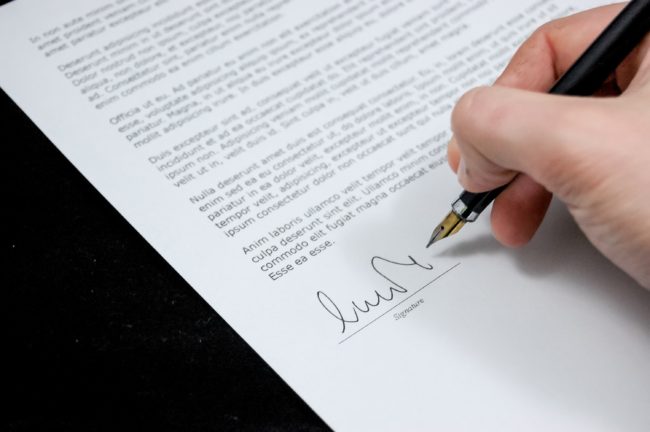 Letters of recommendation can be essential items to gather in preparation for a job search, but they’re especially important if you’re coming out of prison and looking for work. Along with a well-prepared resume or JIST card and your turnaround packet, one or more letters of recommendation may be what convinces a hiring manager to offer you a job. And you might want to request these before leaving prison.
Letters of recommendation can be essential items to gather in preparation for a job search, but they’re especially important if you’re coming out of prison and looking for work. Along with a well-prepared resume or JIST card and your turnaround packet, one or more letters of recommendation may be what convinces a hiring manager to offer you a job. And you might want to request these before leaving prison.
That’s exactly what Dana Wilson of Fresno, Calif., did.
During her 9-1/2 years in prison, Wilson took advantage of every opportunity that came her way. “I felt that something must be wrong with me on the inside that I made choices that made me end up where I did,” she says. “I checked out what kind of groups they had (in prison) and jumped right in. I took advantage of every single self-help group I could get my hands on. I got certificates left and right. It was a never ending growing experience for me.”
And part of that growing experience was training for several types of work inside prison and deciding to concentrate on one of them. For 4-1/2 years, Wilson worked at the CALPIA Dental Lab, where she learned how to create dental protheses. And while doing so, she was thinking ahead to how she would find work once released.

Dana Wilson
Get letters of recommendation from multiple supervisors
As part of her planning process, she requested letters of recommendation from a series of supervisors.
“When I knew my first boss was going to retire, I asked him for a letter of reference. The boss underneath him got that position. So I waited a couple of months and asked him for a letter of reference. Then they hired a new guy and I asked him too,” she says.
And those three letters came in handy when she got out of prison, returned to Fresno and applied for a position at a dental lab. She gave all of them to the hiring manager.
“When I applied for this job I laid everything out on the table,” Wilson says. “When they asked what’s PIA (officially known as CALPIA), I told them it’s the (California) Prison Industry Authority. They looked kind of weird. So I said I’ve been in prison, but let me tell you what I’ve done.” That’s when she told them about all the classes she had taken, the groups she had participated in and the certificates she had earned, all of which are kept in a neatly organized binder, what we call a turnaround packet.
The lab where Wilson worked as a dental technician – her first job out of prison – closed, and she’s had two other jobs since then. And she gets a letter of recommendation from every place she works.
“I think it’s really, really important for people who have been incarcerated to do that. If they run a background check and things pop up it will bring questions to the employer’s mind,” she says. “I can say this is who I was but this is not who I am today. My past doesn’t define who I am now.”
Tips on how to solicit letters of recommendation
Getting a supervisor from a prison job to write you a letter of recommendation may be the best way to begin. That way you’ll have something to start out with. But if you didn’t bother to do that or don’t have a good working relation with your prison job supervisor, don’t worry. Here are some other approaches you can take.
When soliciting letters of recommendation:
- Make a list of potential people to ask. These could be former supervisors both inside and outside prison, teachers of courses you’ve taken or supervisors at places you’ve volunteered.
- Contact your possibilities first by phone – or in person if you can – to see if they’re willing to write a letter of recommendation for you. And, if they are, follow up with an email. Be sure to send them your resume or JIST card and describe the type of work you’re looking for. You may feel shy and afraid to ask for recommendations, fearful that they might say, “No.” It’s important to overcome your fear and just do it.
- If it’s a former supervisor, you may want to remind them of the skills you bring to your work and some of the specific things you accomplished while on the job. You need to make it easy for someone to write the letter and also make sure they highlight your most important strengths and accomplishments.
- Include the date by which you would like to have the letter completed. (It’s best to ask for a date at least a week or more before you actually need it.)
- Be aware that these letters can be written so they can be given to hiring managers at a variety of places you will apply to, like Wilson did. Or they can be addressed to an individual hiring manager for a specific job you’re applying for.
- Make sure to send a thank you note – either hand written or by email – to every person who writes a recommendation letter for you.
- It’s possible, but unlikely, that someone will ask you to write the letter of recommendation yourself and they’ll sign it. If that’s the case, you can find lots of examples online. It’s best to use these examples for ideas of what to include and not copy them word for word, however.


Great article loaded with strong advice. Way to go Dana!